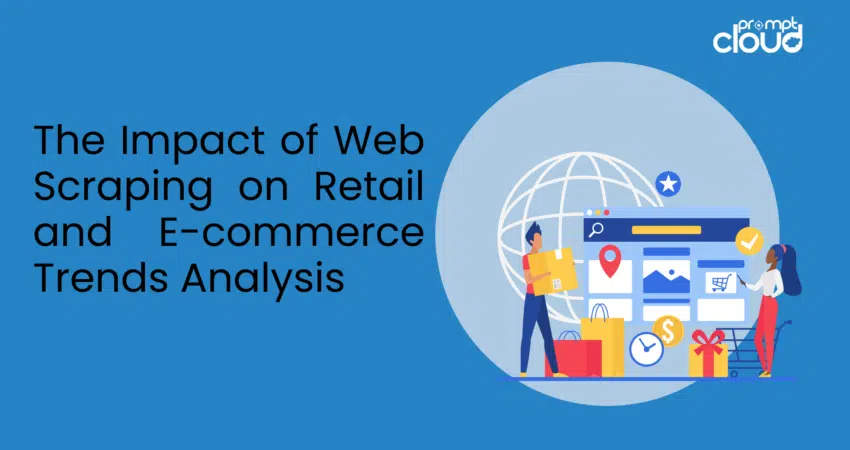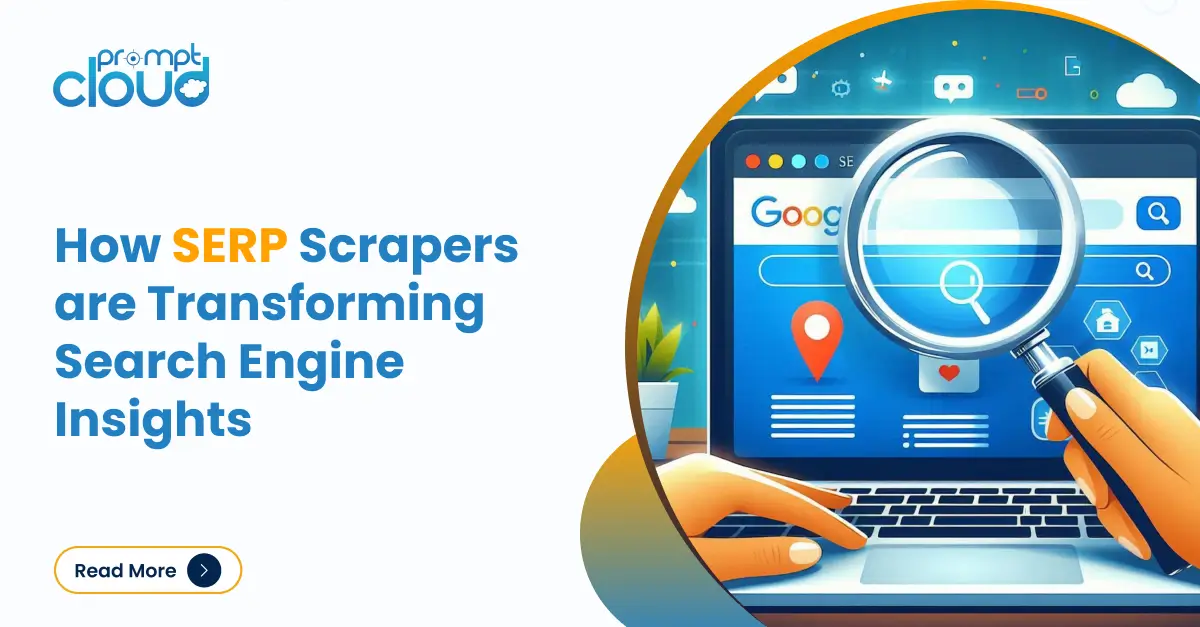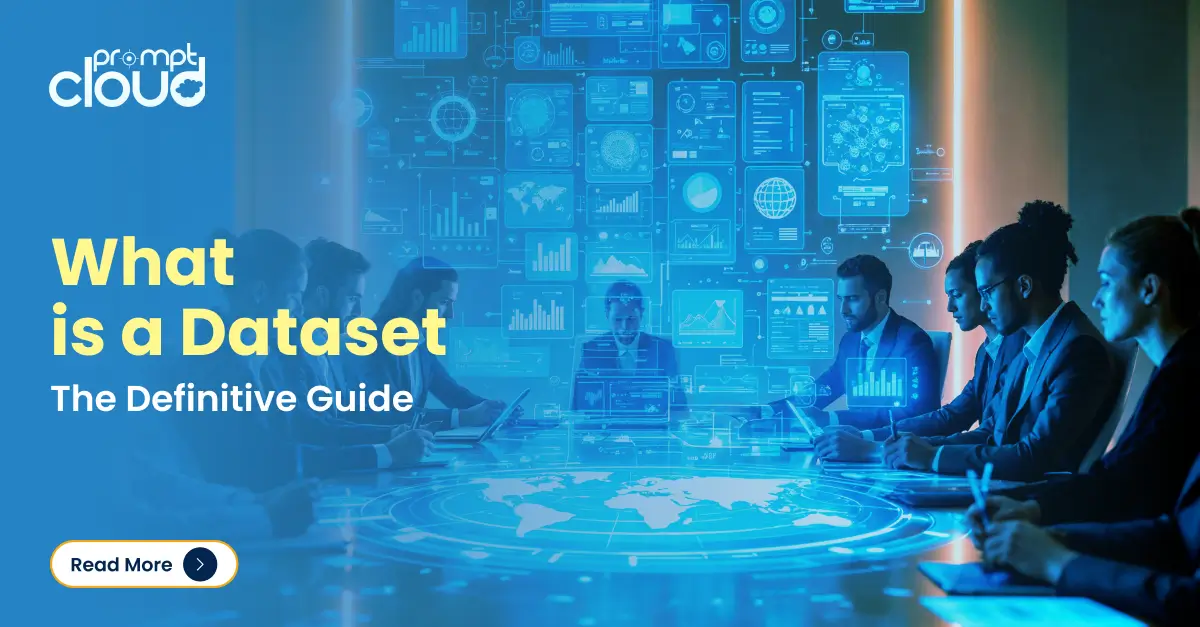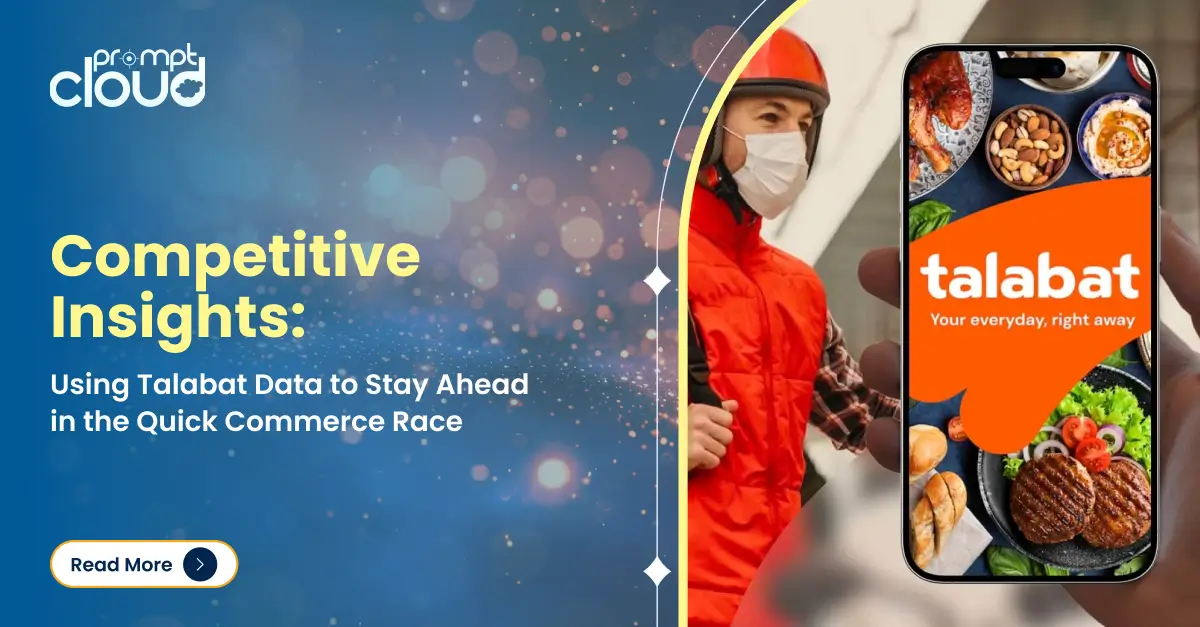
In the rapidly evolving world of retail and e-commerce, staying ahead of market trends is crucial for success. As competition intensifies and consumer preferences shift, businesses need reliable, timely data to make informed decisions. Web scraping has emerged as a powerful tool in this regard, offering retailers and e-commerce businesses a competitive edge by providing access to a wealth of data that drives trend analysis and strategic planning. This article explores how web scraping is transforming the landscape of retail and e-commerce by enabling deeper insights into market trends.

The Role of Web Scraping in Retail

Source: https://www.netsolutions.com/
Understanding Web Scraping
Web scraping is a technology that automates the extraction of data from websites. This technique uses bots or web crawlers to visit websites, read the data displayed on those sites, and copy selected pieces of that data into a structured database or spreadsheet. In the context of retail, web scraping is a crucial tool for gathering a wide array of information from competitor websites, customer reviews, product descriptions, and pricing strategies. This data is pivotal in helping retailers gain actionable insights, adjust strategies promptly, and maintain competitiveness in a bustling market.
Real-Time Market Data
One of the most significant advantages of web scraping in retail is the ability to access real-time market data. This instantaneous data access is transformative for businesses looking to stay ahead of the curve.
- Competitor Pricing: By continuously monitoring competitors’ pricing strategies through web scraping, retailers can dynamically adjust their prices to attract customers and increase sales. This is particularly useful during high-stakes selling periods like Black Friday or back-to-school seasons, where pricing agility can directly impact revenue.
- Product Assortments: Retailers can use web scraping to track how competitors are adjusting their product assortments, including what new products they are offering and what items are being discontinued. This insight helps businesses to strategize their product development and stocking decisions to better meet consumer demand and capitalize on gaps in the market.
- Consumer Reviews: Analyzing customer feedback on products across different platforms can provide retailers with critical insights into consumer satisfaction and product performance. Web scraping facilitates the aggregation of these reviews and comments, allowing retailers to quickly address potential issues and adapt product offerings to meet customer expectations more effectively.
Enhancing Competitive Intelligence
Competitor Trend Analysis
In the fiercely competitive retail landscape, staying ahead often means keeping a close eye on what your competitors are doing. Web scraping is an invaluable tool for this purpose. Retailers use web scraping to systematically collect data on competitor activities, including new product launches, sales promotions, marketing tactics, and online customer engagement strategies. This continuous stream of data allows businesses to benchmark their performance against competitors and swiftly respond to their moves with informed strategies. For example, if a competitor unexpectedly drops the price of a high-demand product, a retailer can quickly analyze the potential impact on their market share and decide whether to match or beat the price.
Pricing Optimization

Source: https://scrapingpros.com/price-optimization-with-web-scraping/
Real-time data obtained through web scraping is critical for implementing dynamic pricing strategies – a pricing approach that allows prices to be adjusted automatically in response to real-time market demand, competitor prices, and other external factors. This method is particularly useful in industries like electronics and fashion, where product life cycles are short and consumer trends shift rapidly. Retailers can set up automated systems to scrape data on a daily or even hourly basis, thus ensuring their pricing strategy remains optimal with respect to market conditions. For instance, during major sales events or when a competitor runs out of stock on a popular item, retailers can adjust their prices to maximize profit margins while still offering competitive rates.
Driving Innovation in Product Development and Marketing
Trend Spotting
The ability to quickly identify and respond to emerging trends is crucial for staying relevant in the fast-paced retail sector. Web scraping is a powerful tool for trend analysis and spotting, enabling businesses to detect and analyze patterns across large data sets gathered from multiple online sources. By scraping data from e-commerce sites, social media platforms, online forums, and even competitor websites, retailers can glean insights into what products are gaining popularity, which designs are trending, and what themes are resonating with consumers. This data-driven approach allows companies to be agile, adapting their product lines and marketing strategies to capitalize on new opportunities. For example, a fashion retailer could use web scraping to monitor changes in consumer preferences about sustainable materials, prompting them to introduce a new line of eco-friendly apparel.
Targeted Marketing
Web scraping also enhances marketing efforts by providing detailed insights into consumer behavior and preferences. This information supports highly targeted, data-driven marketing campaigns that speak directly to the needs and interests of specific customer segments. By analyzing scraped data on consumer demographics, purchasing behaviors, and online engagement patterns, marketers can craft personalized messages and offers that are more likely to resonate with each segment. For instance, if data shows that a segment of customers frequently purchases adventure sports gear, a retailer might target them with ads for upcoming sales on hiking boots or weather-resistant apparel. This level of customization increases the effectiveness of marketing campaigns, leading to higher engagement rates, improved customer loyalty, and increased conversions.
Overcoming Challenges in Web Scraping
Legal and Ethical Considerations

Web scraping, while powerful, comes with its set of legal and ethical challenges that businesses must navigate carefully. The legality of scraping public data varies by country and can be influenced by factors such as the source of the data and how it’s used. For instance, the General Data Protection Regulation (GDPR) in Europe imposes strict rules on how personal data can be collected and used, impacting how businesses can legally scrape and utilize data related to EU citizens. Ethically, it’s crucial for companies to consider the privacy and integrity of the data they collect, ensuring that their scraping activities do not infringe on individual rights or corporate policies. To comply with these regulations, businesses must ensure that their data collection methods are transparent, that they obtain any necessary consents, and that they maintain a clear purpose for data processing that aligns with legal requirements.
Data Quality and Management
Another significant challenge in web scraping is ensuring the quality and reliability of the data collected. Scraped data can often be unstructured or contain errors, making it difficult to use effectively without rigorous cleaning and validation processes. Inaccuracies in data can lead to misguided decisions that may adversely affect business operations. To overcome these challenges, businesses should implement robust data management strategies that include validation checks to verify the accuracy of the data, as well as normalization processes to ensure consistency across different data sources. Additionally, investing in high-quality scraping tools and technologies that can intelligently identify and correct errors can greatly enhance the usability of scraped data. Regular audits and updates of scraping algorithms are also crucial to adapt to changes in source websites, ensuring that data collection methods remain effective and relevant.
Conclusion
Web scraping has undeniably become a cornerstone of competitive strategy in the retail and e-commerce sectors. By enabling access to vast amounts of actionable data, it allows businesses to stay agile, predict market trends, and respond effectively to consumer demands. As technology advances, the scope of web scraping will only expand, further cementing its role in shaping the future of retail and e-commerce.
Are you ready to leverage the power of web scraping to propel your retail business forward? Discover how PromptCloud’s cutting-edge data solutions can transform your approach to market trend analysis and trend analysis and prediction. Contact us today to learn more: sales@promptcloud.com




















